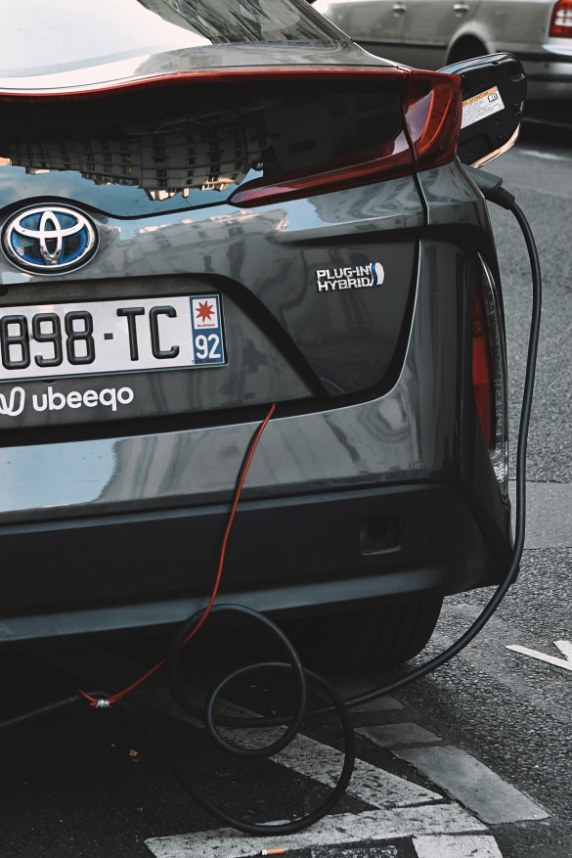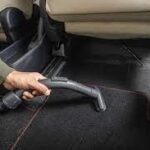While operating a hybrid car will undoubtedly increase your fuel efficiency, many long-time gas-powered car owners are unclear about the cost of upkeep for a hybrid. Regular maintenance and minor repairs for a hybrid vehicle are typically no more expensive than for a conventional vehicle. The repair and upkeep of hybrid vehicles will be covered in this article for your benefit. Please keep reading.
What You Need To Know About Hybrid Vehicles
Hybrid engines may cost more to maintain because of their advanced technology, even though you can anticipate about the same amount of maintenance and repairs as a regular engine.
When deciding whether a hybrid vehicle is right for you, this is just one of many factors to consider. Here are some additional factors to think about before buying a hybrid:
Disadvantages Of Purchasing A Hybrid
- Long commutes may result in higher costs for you. Although it still uses less fuel than the average vehicle because you’re traveling a longer distance, your car will need the assistance of a gas-powered engine, so you’ll need to make up the difference in fuel costs.
- It can be difficult and expensive to make repairs. The transmission, combustion engine, and electric drive motor are intended to work together as one powerful entity. The other mechanisms might have trouble operating if one of these crucial parts fails. Diagnostics are critical and should be performed by a professional, certified technician.
- Replacement battery packs are pricey. Although the majority of maintenance procedures are the same for both combustible and electric engines, there are differences in how the electric drive motor and onboard battery storage are managed. It costs between $3,000 and $8,000 to replace the battery packs at about 80,000 miles.
Advantages Of Purchasing A Hybrid
- Minor repairs are things you can do on your own. Do-it-yourselfers are capable of performing fluid checks, air or fuel filter replacements, and spark plug replacements because the hybrid’s operation is similar to that of a combustion engine.
- Spend less on gas and safeguard your engine. Many hybrid cars have the option to save fuel by turning off their engines when stationary, like at a stop sign. This helps keep the engine from deteriorating because it isn’t running and engaged.
- Some brakes might last longer. Many hybrid vehicles are outfitted with regenerative braking systems that reduce wear on brake systems while simultaneously recharging onboard batteries.
The vehicle needs a separate cooling system because the electronic components used to control the electric motor for braking and motion generate a lot of heat. The battery control unit controls discharge and charge ratios as well as the charge reserve state.
These systems use both cooling and heating systems to function flawlessly in all environments and circumstances.
In order to prevent serious damage or breakdowns, a qualified technician has the experience and knowledge to recognize when clamps, hoses, filters, and pipes are showing signs of wear and when to replace them.
How Do Hybrid Vehicles Work
Hybrid cars must first be explained in order for us to discuss maintenance costs. A hybrid car has two engines. One engine is a conventional internal combustion engine, and the other is an electric motor and battery.
Like any other engine, your traditional combustion engine needs maintenance. However, unlike standard motor vehicles, your hybrid doesn’t always use the combustion engine. The combustion engine is turned off when the car uses its electric motor.
Your hybrid reduces the normal engine wear and tear because your combustion engine isn’t always running. You can save money by using this process to lower the amount of maintenance required.
Maintenance For Hybrids vs. Gas-Powered Vehicles
A hybrid can typically travel 30 to 40 miles on electricity alone. A hybrid’s gas and electric battery system typically have a range of 300 miles or more before needing refueling or a recharge.
However, since a battery pack and ICE components in a hybrid work together, they experience wear and tear much more gradually than vehicles that only use gasoline.
It is not surprising that repair costs are comparable between hybrid and gas-powered vehicles since both use internal combustion engines. The following routine maintenance tasks are shared by vehicles with these two types of drivetrains:
- Oil changes: Replacing motor oil regularly so that engine components interact smoothly
- Fluid changes: Regularly replacing coolant, antifreeze, steering, and transmission fluids
- Battery replacements: Make sure the car battery (not the rechargeable battery pack that powers the car’s electric motor) has enough power to start
- Tires: Regularly replacing tires due to wear and damage
- Spark plugs, filters, and belts Replacing cabin air filters, engine spark plugs, and worn belts
- Wipers: Replacing worn windshield wipers
Hybrid Maintenance For Brakes
You’ll notice that routine brake pad and rotor replacements are not maintenance tasks shared by gas-powered and hybrid vehicles. That’s due to the fact that regenerative braking is used by almost all hybrid vehicles.
The term “brakes” is not used in the conventional sense with this kind of braking system. When braking, the electric motor of hybrid and all-electric vehicles actually turns backward. The motor starts to reverse its direction, as a result, slowing the wheels of the vehicle. Hybrid vehicles never need to have their brake shoes, brake pads, or brake rotors replaced.
In hybrid vehicles, the electric drive motor, internal combustion engine, and transmission all operate in concert. The other systems might have trouble functioning if one of these components fails, which could necessitate expensive repairs.

However, there is no greater chance of such a malfunction in a hybrid car than there would be in a regular car that experienced a catastrophic failure. Additionally, almost all automakers provide warranty coverage in the event of catastrophic engine failure or malfunction.
Hybrid Warranties
Manufacturer warranties provide additional security because the battery pack in a hybrid, particularly a plug-in hybrid, can be prohibitively expensive to repair.
Modern hybrid vehicles typically come with warranties that are specific to the hybrid system and last at least eight years or 100,000 miles or ten years or 150,000 miles.
The costs can be exorbitant if the hybrid battery in your car dies after the warranty has passed. But while a replacement battery pack once cost as much as $8,000, one today is probably closer to $2,000 in price.
Hybrid Repair Costs
Hybrid vehicles have numerous ways to reduce your costs. Hybrid cars do have some special features, though, and they can be expensive to repair. The large battery pack is an illustration of this.
Repair costs for this battery can be astronomical when it malfunctions. Fortunately, many hybrid vehicles come with comprehensive warranties that will cover these expenses. But you might be in trouble if you experience these problems after your insurance expires.
Tips For Keeping Hybrid Maintenance Costs Low
While driving a hybrid can help you use less fuel and possibly pay less for maintenance, there are a number of precautions you can take to ensure that your hybrid lasts for a long time and doesn’t require any repairs that aren’t necessary. These include:
- Keeping up with maintenance: Not only do regular oil changes, tire rotations, and fluid replacements improve fuel efficiency, but they can also extend the life of your car. Keep in mind that just because a hybrid car is more efficient doesn’t mean it requires less frequent maintenance.
- obtaining maintenance from licensed mechanics: No matter what kind of hybrid vehicle you buy, make sure the maintenance is done by a licensed professional, like the service department at a dealership or a brand-certified garage. Hybrid vehicles’ high-voltage batteries shouldn’t be serviced by unlicensed personnel.
- Drive fewer miles: Attempt to drive your car less frequently. By using other forms of transportation, such as biking, ride-sharing, or walking, you can reduce the amount of damage you cause to your car and the cost of repair. You’ll avoid going to the gas station by using other forms of transportation.
Conclusions
As you can see, hybrid cars have a lot to recommend them. When they’re in warranty and running well, hybrid cars don’t cost any more to maintain than a gas-only equivalent, and they’ll also save you money on gas. However, after the warranty expires, fixing a hybrid may be much more expensive than fixing a gas-only model.



